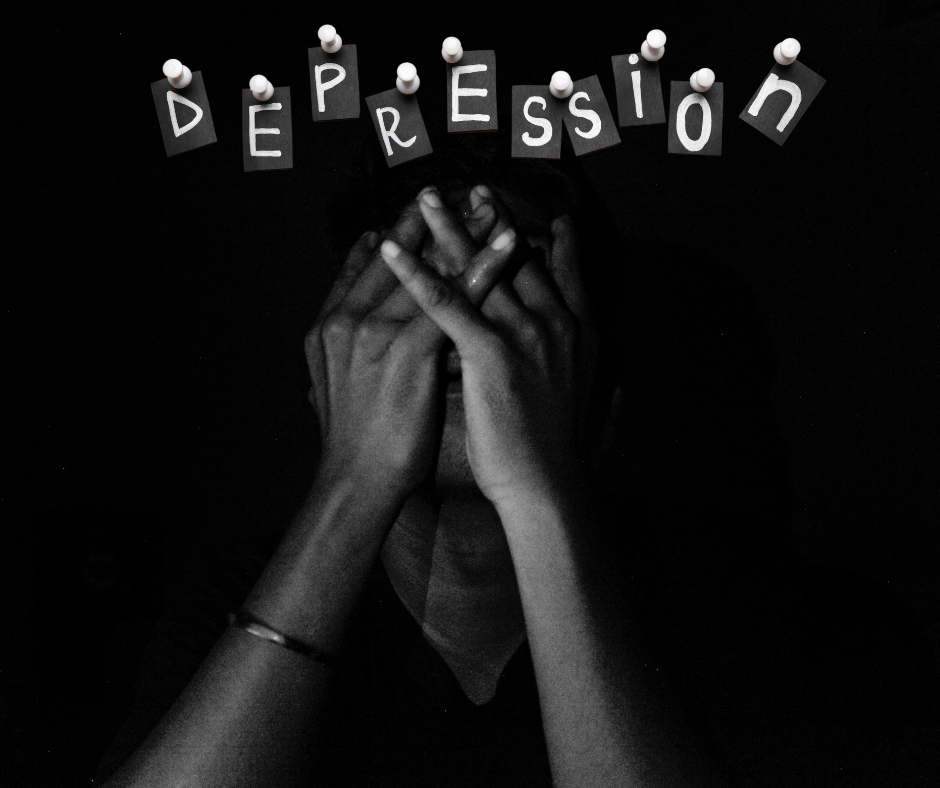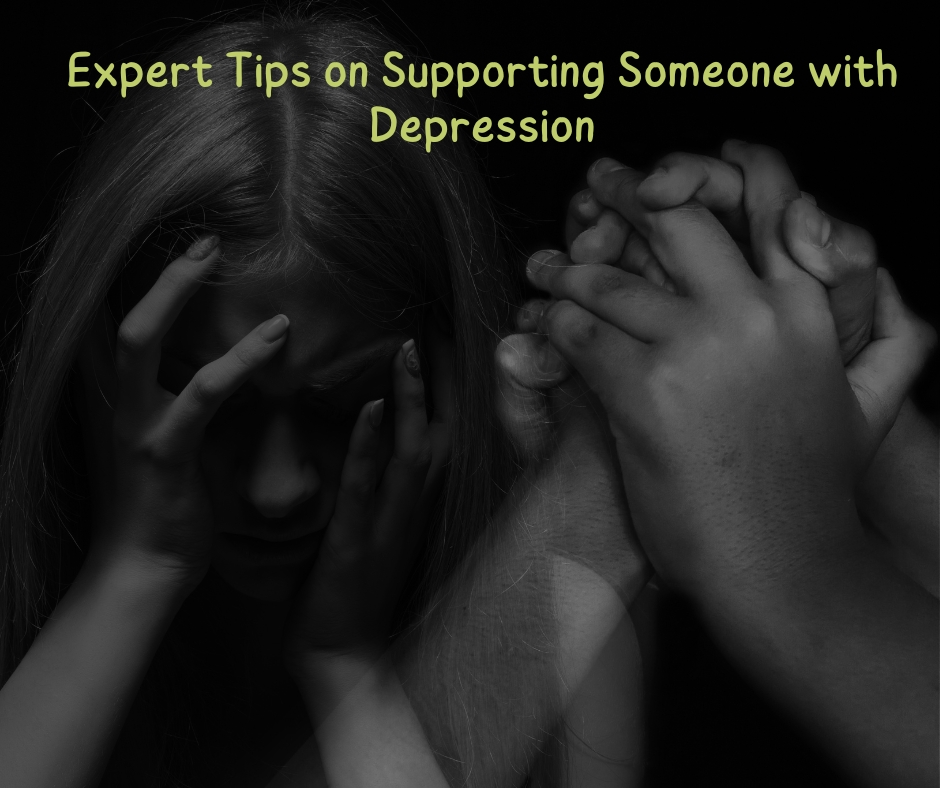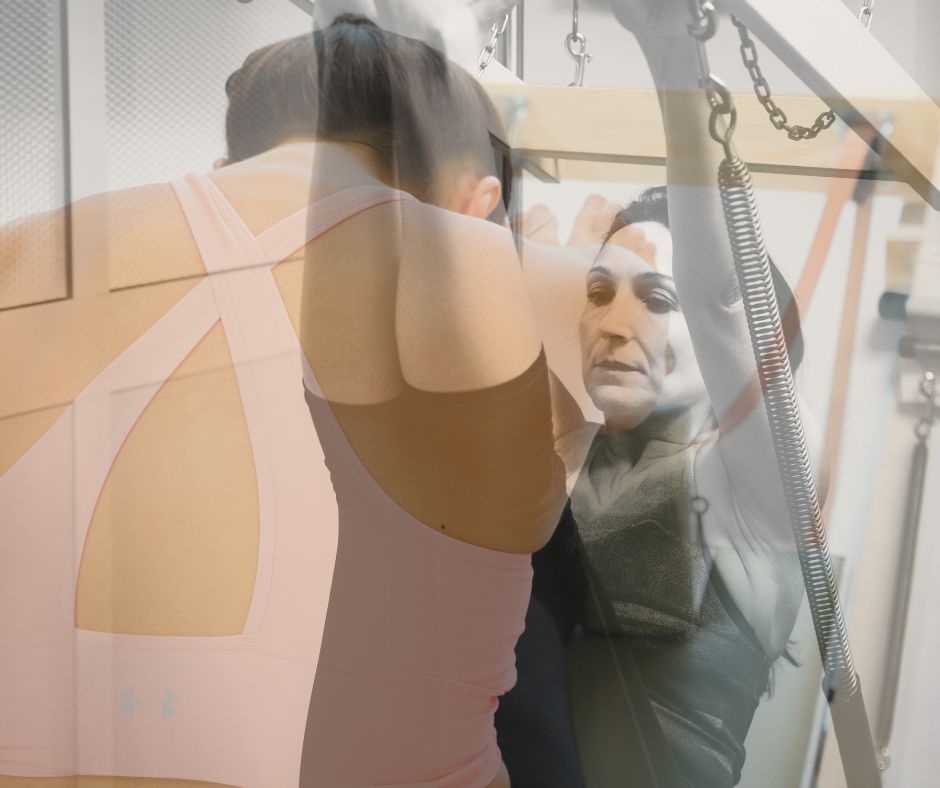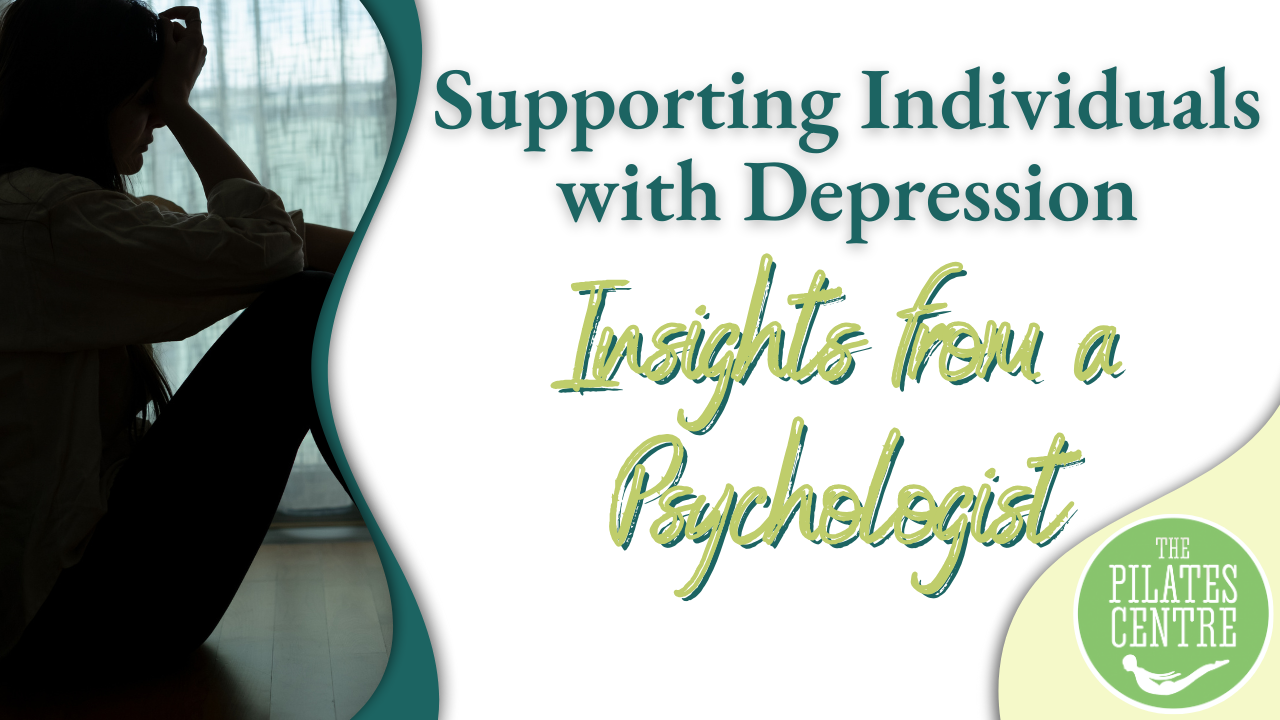Introduction
Depression is a complex mental health condition that affects millions of people worldwide. It’s more than just a passing feeling of sadness; it can be a debilitating challenge that affects one’s thoughts, emotions, and behaviors. According to the American Psychiatric Association, it’s crucial to understand that the impact of depression goes far beyond what meets the eye. So, if you’re looking for ways to support someone who is living with depression, this blog post is here to guide you through the process.

We’ve enlisted the help of a psychologist to provide insights on how to help your loved ones dealing with depression. While emotional support and communication are crucial, there’s another avenue worth exploring – Pilates. In this blog, we’ll discuss how Pilates can be a valuable tool in the battle against depression, alongside the psychologist’s expert advice.

Educate Yourself About Depression
The first step in providing support is to understand what your loved one is going through. Depression is not one-size-fits-all, and its symptoms can vary from person to person. According to the Cleveland Clinic, common symptoms of depression include negative thoughts, sadness, reduced interest in activities, hopelessness, irritability, and changes in sleep and eating patterns. However, there can be individual variability, with other symptoms such as fatigue, difficulty concentrating, and even thoughts of self-harm or suicide. Different forms of depression, like clinical depression, postpartum depression, and seasonal affective disorder, can further complicate the picture.
Encourage Open Communication
Encourage your loved one to express their thoughts and feelings. Effective communication is a powerful tool in providing support. The National Alliance on Mental Illness (NAMI) emphasizes the importance of being a safe and empathetic listener. Let your loved one know that you care about them and are available to talk.
Speak Kindly and Patiently
Depression can be incredibly challenging, and harshness or criticism won’t help. Approach conversations with kindness and offer assistance, both big and small, to ease their burdens. Simple acts like walking their dog, helping with groceries, or cleaning the house can make a significant difference in their daily life.
Be an Active Listener
When your loved one opens up about their mental health, give them your full attention. Instead of trying to fix their problems, listen attentively and demonstrate understanding by maintaining eye contact and occasionally restating what they’ve shared.

Help Them Challenge Negative Thoughts
Depression often leads to persistent negative thoughts that are difficult to ignore. Encourage your loved one to challenge these thoughts and help them understand that they are temporary. Psychologist Temple suggests making a list of reasons why they might feel worthless but also listing reasons why they are not worthless.
Ask About Self-Harm
Although it’s a sensitive topic, don’t hesitate to ask your loved one if they are thinking of harming themselves. Specific questions like “Have you thought of hurting yourself?” can be crucial. If they acknowledge these thoughts, follow up with more inquiries to gauge their situation. According to Temple, asking about self-harm doesn’t increase the likelihood of it happening. If they are indeed considering self-harm, escalate your efforts to get them professional help.
Reintroduce Enjoyable Activities
Depression often causes people to lose interest in activities they once enjoyed. The Cleveland Clinic notes this as a common symptom. Encourage your loved one to rekindle their love for these activities by doing them together, whether it’s running, reading, watching movies, or any other hobby that brought them joy.
Support Professional Help
Depression should not be tackled in isolation. While your support is crucial, professional treatment may also be necessary. Assist your loved one in finding the right doctor or therapist, and consider attending therapy sessions with them if they’re comfortable with it.
Including Valuable Resources for Your Journey
In times of depression, it’s essential to seek professional guidance. In cases of severe conditions, consulting a medical expert or licensed psychologist is crucial. They can offer the specialized help needed to address your unique situation.

Moreover, Pilates exercise interventions have been recognized as an alternative or supplementary method for depression treatment. To explore the potential benefits of Pilates and how it can complement your journey to mental well-being, we invite you to connect with us at the Pilates Centre.
Our dedicated professionals are here to support you on your path to recovery. Feel free to reach out to us via email at info@pilatescentre.es or contact John and our team at +34 610 30 60 05. We are more than willing to provide personalized advice tailored to your specific requirements. Your well-being is our priority, and we are here to assist you every step of the way.
Conclusion
Depression is a challenging condition, and it requires a multi-faceted approach for support. In addition to the expert tips from our psychologist, consider introducing Pilates into the equation. Pilates is not a substitute for professional help but can be a complementary strategy to alleviate depression symptoms. The combination of emotional support, communication, and physical activities like Pilates can offer a more holistic approach to helping your loved ones on their journey to recovery.
Remember, patience and understanding are key. Depression can be a long and challenging battle, and your support can make a world of difference in your loved one’s life. By educating yourself about depression and providing the right support, you can be a source of strength and hope during their difficult times.

John McCallum
is an esteemed, Fully Certified Comprehensive Classical Pilates Teacher and takes immense pride as the proprietor of the distinguished Pilates Centre located in Jalon, Spain. His remarkable journey in the realm of Pilates commenced back in 2006, a pivotal juncture when he confronted the diagnosis of three slipped discs in his lower back. Pilates emerged as a beacon of profound hope and rejuvenation in his life. Instead of succumbing to the prospect of surgical intervention, Pilates gracefully assumed the role of his lifeline.
This transformative experience impelled him to make a resolute decision that would reshape his life’s trajectory. Following his journey to become a Pilates Teacher, he passionately extended the benefits he had personally garnered to those in need. This also took him to travel to other countries to continue to learn and have a fuller understanding of the method.
Fueled by an unwavering passion for Pilates, he has forged a dynamic collaboration with a reputable research institution. This strategic alliance enables him to deliver precise and illuminating insights, fostering support and empowerment for individuals interested in the power of this method. His literary contributions have garnered distinction within an array of esteemed global publications.




